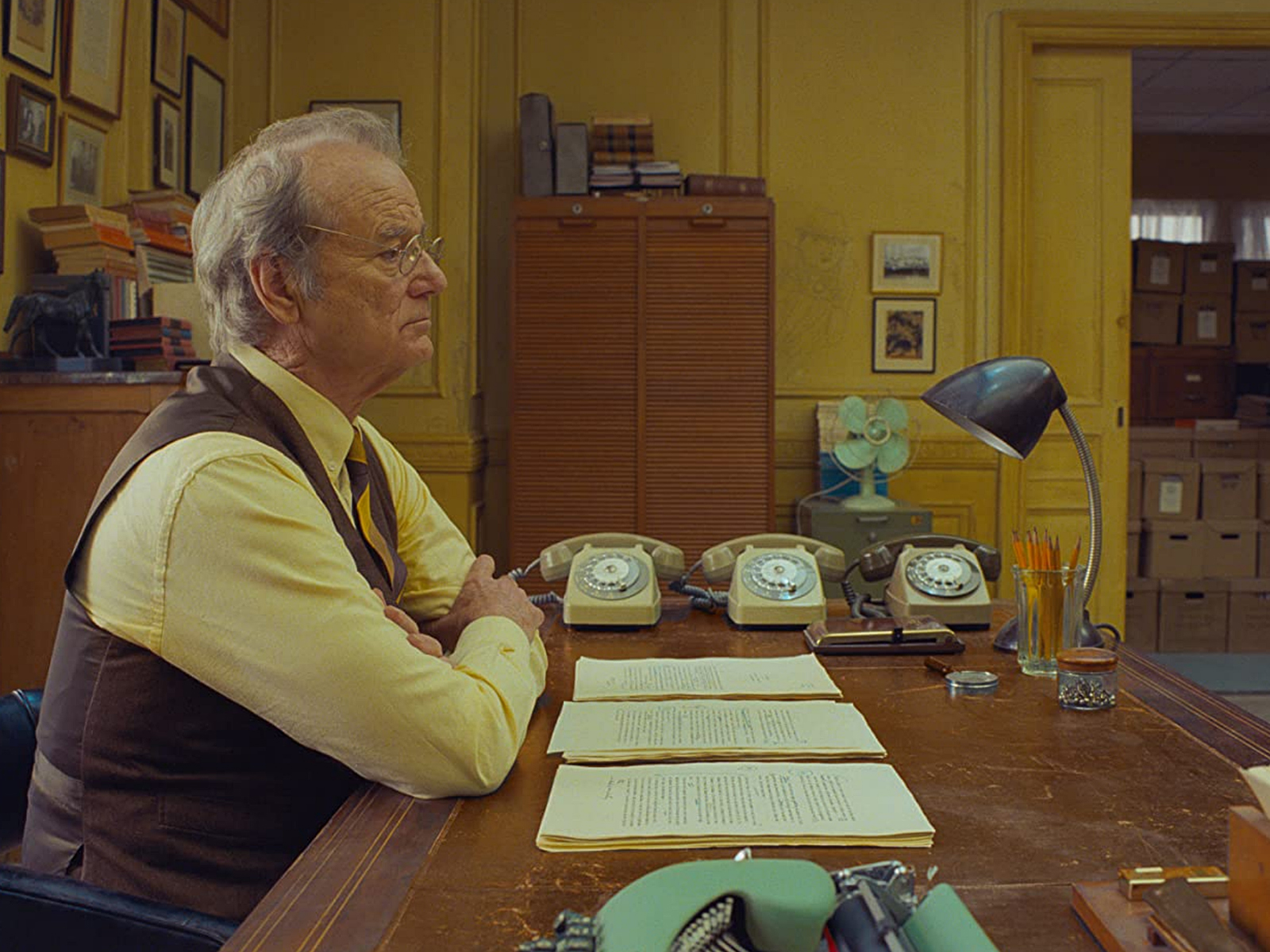
- Interviews
“The French Dispatch” – An Anthology with Interconnecting Stories
Wes Anderson’s love letter to French cinema and homage to print journalism comes in the form of his upcoming film, The French Dispatch, in which he has recruited the Anderson ensemble of usual suspects including Bill Murray, Adrien Brody, Jason Schwartzman, Tilda Swinton, Owen Wilson, and Bob Balaban, and has added some new faces to his well-worn troupe, including Alex Lawther, Timothée Chalamet, Lea Seydoux and Elisabeth Moss.
At the New York Film Festival, the esteemed writer-director-producer joined some of his cast via Zoom from Cinchón, Spain, on the outskirts of Madrid, where he is shooting Asteroid City to discuss this much-anticipated new film. Bill Murray began the press conference in characteristic deadpan style: “Tonight was barbecue night. You know, the people of Spain love their ham, they love their four-legged pigs.” He paused. “And I have to say, the behavior has been very, very good here. There have been no incidents, no police actions, no military coming to the town – it’s pretty quiet,” he shrugged. “And I think we’re making a very good movie here, a lot better than that piece of junk that you just saw,” he joked, referring to The French Dispatch screened in New York City.
The film’s intended premiere at the Cannes Film Festival was canceled in 2020 due to COVID. The story takes place in the fictional town of Ennui-sur-Blasé, where an American magazine (based on The New Yorker) is published and is now in its final issue. The editor (Murray) lives in the French town he adopted after holidaying there twenty years earlier. The film plays out like a collection of short stories inspired by some of Anderson’s favorite pieces in The New Yorker, with his gaze fixed on journalists from the 50s and 60s.
Anderson explains his fascination with France which clearly inspired him to make the film. “For years, I’ve spent at least half of my time in France. So, I’ve been wanting to make a French movie and do a movie where I could work with some of my favorite French actors. Also, I wanted to use what I’d been experiencing for years as an American living abroad.”
The movie is an anthology with interconnecting stories. “Each part of the movie gathers together so many different inspirations; some of them are French and some of them come from The New Yorker magazine. The interesting thing to me is when we were writing this, we approached it not as just one experience, but as short stories,” Anderson explains. “And it has different kinds of interesting surprises along the way, and it was very fun working in that way.”
Longtime collaborator Schwarztman, who also took on story credits, offered: “It’s a love letter to French cinema but also musical groups of the time.” The French Dispatch marks his seventh time working with Anderson, beginning with his onscreen debut in Rushmore (1988). “It’s always so fun to work with Wes because you learn so much.”
The film was shot for a reported budget of US$25 million in Angoulême, in France’s southwest. “I’d never been there before,” explained Anderson. “It perfectly suited us as a kind of backlot, and it became a big character in the movie.”
Producer Jeremy Dawson elaborates: “The way we usually work is we get the troupe together, take over a hotel where we can all live, and hope everything we’re going to shoot is within 480 seconds of the hotel in terms of transportation time. So we shot down the street, in front of the hotel, the church across the street, the plaza over the road. We also found an old factory where we built a lot of sets. So it was a hybrid of sets we built and locations we found, but in general, what we tried to do is turn the whole town into our little universe.”
It’s always a treat for the audience to see which of Anderson’s regular cast members show up, and the iconic director is seemingly never short of them. Anderson nods. “It’s particularly encouraging when people (you’ve worked with) want to come back again.”
Longtime collaborator Balaban repeated the question aloud, “What keeps you coming back to work with Wes?” He chuckles. “It’s the fear that if you don’t keep coming back you won’t get asked again. That’s the silly answer. The real answer about working with Wes is, simply, that it’s a joy.”

